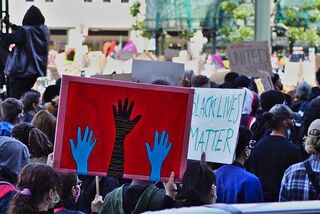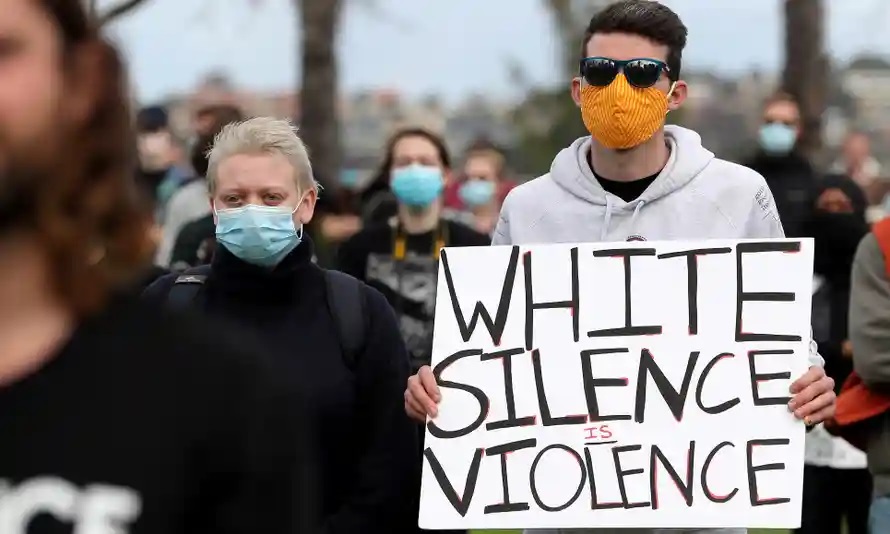Three ways to address unconscious attitudes.

Source: Pixabay / Patrick Behn
by Deeba Ashraf, MD and Ebony Dennis, PsyD
Awareness of racism increased last summer as Black Lives Matter protests spread across the country. Millions marched. Books about racism were sold out. It felt as if a new clearer dawn was coming.
Unfortunately, as a society, we may find significant limits in our ability to acknowledge and reduce racist thinking and behavior. Why? Racist attitudes are often unconscious. For those who have achieved the ability to acknowledge that racism exists, we suggest three ways to begin changing attitudes about “race”— curiosity, courage, and building intimate relationships with people who are different from yourself. These 3 behaviors can help illuminate and address your unconscious racist attitudes.
- Curiosity. Curiosity starts with self-education and self-reflection to better understand your beliefs and then talking to others about ethnicity and racism.
- Courage. Courage is necessary to confront our own unacknowledged biases and recognize where some of them come from, including our upbringing or involvement in various groups, or from society at large. This part can be uncomfortable. Try to face the discomfort. Do not turn away from it.
- Connection. Building and maintaining relationships with individuals of differing backgrounds, allows recognition of our a) common humanity and b) shared struggles. It is one of the most profound ways of changing attitudes about race.
How Our Minds Resist Change
Being aware of, acknowledging, and changing deeply-ingrained racist ways of thinking is difficult, and takes time and effort. This is particularly challenging because some of these attitudes and ways of thinking are beneath our awareness—automatic—without thought. The human mind resists change to protect our self-esteem from uncomfortable truths, and our defenses, which are unconscious, work to avoid uncovering troublesome knowledge about ourselves. Even changes that we know will make us feel better, such as exercising more, can be hard to initiate and sustain.
- Implicit Bias. Often, changes to how we think or do things require a shift in how we view ourselves, our needs, and our relationships. Changing attitudes about race can be especially hard because these attitudes are usually learned when we are very young and are frequently outside our awareness. (Taking an implicit bias survey can provide an opportunity to see your unconscious in action.) According to Beverly J. Stoute, a child and adolescent psychoanalyst and psychiatrist, children develop an awareness of and curiosity about racial differences early. “As children grow, parents, teachers, media representations, and interactions with different groups can either powerfully facilitate or thwart children’s openness to racial and ethnic differences,” Stoute says.
- Denial and Projection. There are many ways we try to protect ourselves from painful feelings or unwanted truths about personal beliefs. One is by asserting that unpleasant truths are not real, otherwise known as denial. Another is to imagine that these “horrible truths” only exist in others and not in ourselves. This is called projection and it involves attributing qualities like laziness or criminality to a particular group, while overlooking how these traits might apply to ourselves, or those in our own group.
- Group Identity. Being part of a group can offer many benefits: a sense of connection and protection, and, as often in the case of being white in America, prestige. Group identity can be passed from one generation to the next. These group attitudes are also a part of ongoing relationships, such as with friends or colleagues who share the same ideas and values. Trying to change/diverge from the group’s entrenched attitudes can result in group members feeling threatened or fearing a loss of needed group support and cohesion.
When people can break through these unconscious ways of protecting their self-image, they may recognize the costs of racism and look at the loss and pain it inflicts on themselves and others. It may be possible to reevaluate one’s own ideas of what is healthy and growth-oriented. This process can be difficult, but experiencing the discomfort of loss and pain the dynamics of racism engenders can motivate a desire to change.
We are reminded of a quote from James Baldwin about race: “People can cry much easier than they can change.” Changing attitudes about racism will take more than empathy or sympathy. It will take time and effort, and a willingness to confront unconscious attitudes in oneself and occasionally some hurt feelings, but it is through these growing pains that real, lasting change happens.
Ebony Dennis, PsyD. is a psychoanalyst and clinical psychologist in private practice in Washington, DC. She writes about and teaches psychoanalytic theory and therapy, along with supervising clinical work and consulting about diversity, equity, belonging, and inclusion. Follow her on Instagram @ Livingintruth5
Deeba Ashraf, MD is an advanced candidate at the Center for Psychoanalytic Studies in Houston and a member of the American Psychoanalytic Association’s Committee on Public Information. She is a psychiatrist and assistant professor at the Baylor College of Medicine and is board certified in adult, child and adolescent, and consultation-liaison psychiatry. She currently works on the young adult inpatient unit of the Menninger Clinic in Houston and sees all ages in her private practice.

